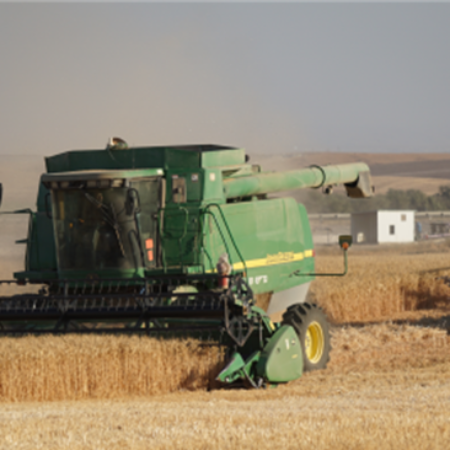While you at St Paul’s were celebrating the Church’s birthday and the coming of the Spirit on Pentecost Sunday, I attended the agricultural festival of Pentecost here in Israel. Before Pentecost had anything to do with the coming of the Spirit or the Church, it was a Jewish festival. Normally known as Shavuot or the Festival of Weeks, it celebrates the conclusion (more or less) of the grain harvest.
Deuteronomy 16:9-11 reads: You shall count seven weeks; begin to count the seven weeks from the time the sickle is first put to the standing grain. Then you shall keep the festival of weeks to the Lord your God, contributing a freewill-offering in proportion to the blessing that you have received from the Lord your God. Rejoice before the Lord your God—you and your sons and your daughters, your male and female slaves, the Levites resident in your towns, as well as the strangers, the orphans, and the widows who are among you—at the place that the Lord your God will choose as a dwelling for his name.
The grain harvest in Israel begins with barley and then moves on to wheat. That’s why it takes approximately seven weeks. Over time the beginning of the grain harvest was associated with Passover. Therefore Shavuot is now celebrated seven weeks after Passover. That’s fifty days after Passover, and in Greek the word for “fiftieth” is “pentekoste”. That’s how we got our name for the celebration, which we still remember seven weeks after Easter Sunday.
Here in Israel the celebrations at the Kibbutz took place out in the fields where some of the last grain was left standing. The secularised ceremony began with music, before moving on to a parade of agricultural vehicles, both old-fashioned (1950s – 1970s) and modern.
The highlight is the ceremonial harvesting of wheat by the combine harvester, which then discharges the grain in a bin placed there for this purpose.
The children take to the stage with symbolic sheaves of wheat and signs indicating the various agricultural products harvested over the year at the Kibbutz. Some dances on stage follow and the whole event is completed with more music.
People disperse to their homes where family members coming from all corners of the land share a meal. It is traditional to eat baked goods with dairy ingredients on Shavuot.
Pentecost originally is a therefore a Harvest Festival. In fact, there is another Jewish harvest festival in autumn—Sukkot, or the Festival of Booths. Many Jewish holidays are closely linked with the seasons of the land and agricultural activities. In later times they often also acquired more spiritual or legal significance, but the agricultural aspect is often there. They are an opportunity to be thankful for the many blessings of God in our lives.
Blessings from Israel – Tim

